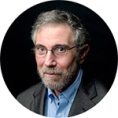From the time that Francis Bacon declared that scientia potentia est we have held a conviction that knowledge is indeed power.
Economist Paul Krugman now asserts what may be a very, very inconvenient truth that explains some of the disturbing events we see around the world today (New York Times: Knowledge Isn’t Power). Many influential thinkers and policy makers expediently explain away the rising economic inequality by attributing it to a growing skills gap and individuals’ lack of access to or desire for education. But Krugman points out that the biggest economic gains have all gone to a tiny group of individuals “holding strategic positions in corporate suites or astride the crossroads of finance” and not at all distributed proportionally according to possession of college degrees. In spite of the claims of Wall Street that the push for governance and regulation have gone overboard, the inordinate distribution of economic power presents a case for more effective oversight by governments.
It is stark inequality that explains recent phenomenon such as the Occupy Wall Street movement. I will even argue that it is stark inequality that explains why we see hundreds of young disaffected Westerners beguiled into turning into Jihadists or lone-wolf-terrorists.
Disappointing record of corporate governance
The Philippines too suffers from great inequality. The billionaires in the Forbes List of the 50 Richest Filipinos have the burden of proving that they are not too short-sighted not to ensure the balance among the economic health of its workers and contractors, the protection customers and the robustness of corporate dividends. We are painfully aware of unfair practices in the past that – in the end – stunted the growth of the economy as a whole. In the face of intractable poverty, it is perhaps only the patient, peaceful, and amiable character of Filipinos generally that has prevented a violent backlash that we are seeing in some of the emerging economies today.
Krugman is correct in saying that education – by itself – will not cut it. Nevertheless I still believe that for 99% of us, education is still the first step on the way up. In the long-run, education should lead to middle class growth that will one day form an irresistible consumer base and a key political power bloc. Except that as astute economists like Krugman wryly tell us, in the long-run we will also be all dead.
Clearly, there are a host of factors that need to co-exist with education for an economy to grow in a more equitable fashion and a short blog post will not do justice to this topic.
I will end with a few words on business education in the Philippine context to address an ongoing discussion in many companies about an increasing need among university graduates joining the workforce to possess a modicum of business acumen.
A case for entrepreneurship
In the Philippine context, business education should focus a lot more on entrepreneurship moving forward. In an inescapably globalizing world, either we engage the Wall Street behemoths and learn how to succeed within their glistening corridors or we create alternatives by building grassroots businesses that generate employment. The former is what many like myself and tens of thousands of other professionals have learned and continue to learn through our local business schools.We are professional managers adept at implementing somebody else’s vision and strategy.
The college and MBA degrees have led to jobs – lots if it – but have failed to contribute to the redistribution of economic power. We don’t nurture enough entrepreneurs the same way that China or India or even Singapore does.
The Philippines is a one-trick pony in this respect.



